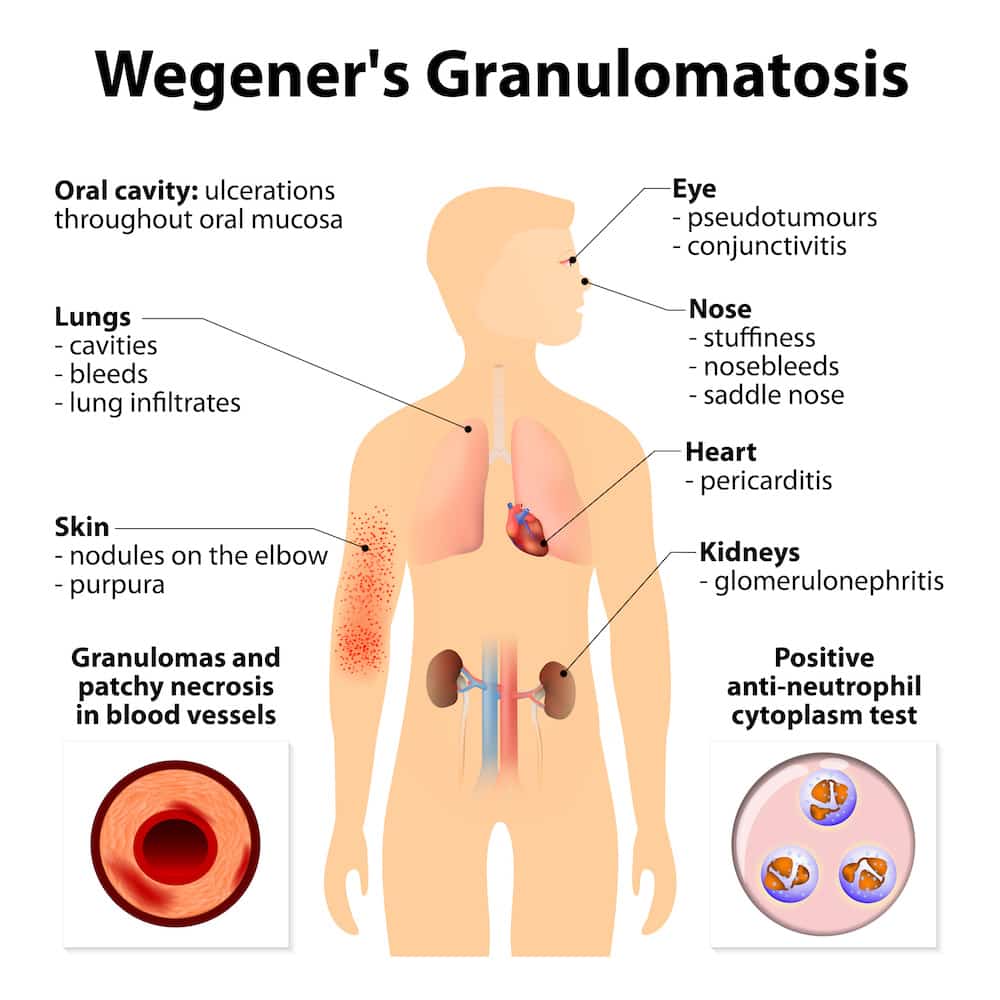Wegener’s disease – granulomatosis, now known as Wegener’s Granulomatosis or Granulomatosis with Polyangiitis (GPA) – is a rare autoimmune disease that primarily affects the body’s small and medium-sized blood vessels. This condition is characterized by blood vessel inflammation, which damages various organs, such as the lungs, kidneys, and upper respiratory tract.
The exact cause of GPA is not fully known, but it is linked to a combination of genetic predisposition and environmental factors. It is an autoimmune disease as it involves the mistaken attack of the immune system on the healthy tissues and blood vessels, leading to inflammation and the formation of granulomas (small clusters of immune cells) in affected organs.
Early diagnosis and treatment of GPA are essential to manage the disease and prevent organ damage. Treatment typically involves long-term corticosteroids and other immunosuppressive medications. In some cases, plasmapheresis (a procedure that filters the blood) may be used to remove harmful antibodies from the bloodstream.
The prognosis for individuals with GPA has improved with advancements in medical treatment, but the disease can still be severe and lead to complications if not managed properly. Regular monitoring by healthcare professionals is necessary to assess disease activity and adjust treatment as needed.

Early Signs and Symptoms
Wegener’s disease can present with a variety of symptoms, and the early signs of the disease can be subtle and nonspecific. Some of the early symptoms of GPA may include:
